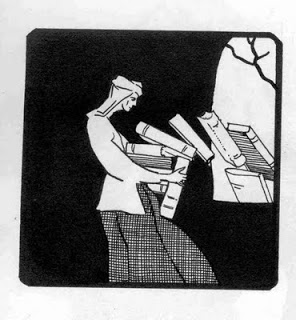When we think about book banning, the first thing that usually comes to mind is sex. I must confess to loving Tom Lehrer’s classic song “Smut” in which he extolls his hobby of “re-reading Lady Chatterly.” And of couse many books (including Lady Chatterly’s Lover) were banned for their prurient content. For Ulysses, it was masturbation in the Nausicaa episode which led the book to run afoul of the New York Society for the Suppression of Vice. For In the Night Kitchen, it was the nudity of the main character, Mickey, which sent librarians and parents up in arms and running to find their paint boxes to add pajamas and diapers.
But sex isn’t the only reason that books have been banned. The other topics which are verboten for dinner party conversation–religion and politics–have been just as (if not more) important. Before it was abolished during Vatican II, The Catholic Church’s Index of Prohibited Books (Index Librorum Prohibitorum) ran to over 4,000 titles; while smut was certainly one reason for books to be indexed, heresy was another. For example all of the works of Desiderius Erasmus were placed on the Index because his criticisms of the Church gave too much leverage to Protestants. And let’s not get started on politics. All the way back in Roman times, Caligula apparently suppressed The Odyssey because it promoted Greek ideals of freedom. More recently, at the time of French Revolution the British government sued Thomas Paine for seditious libel and banned The Rights of Man for fear that it would encourage the Brits to emulate the French and the Americans. And in our time, in 2003, seventy-five dissidents in Cuba were arrested for distributing “subversive content” including the U.S. Constitution .

